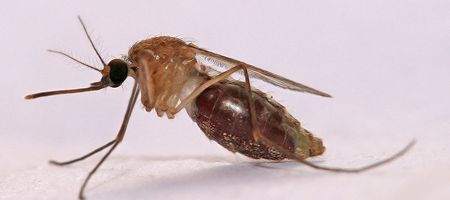A health charity supported by the Bill & Melinda Gates Foundation has found a new way to inoculate against malaria – using mosquito bites.

The PATH Malaria Vaccine Initiative (MVI) is working with Tulane University and India’s Gennova Biopharmaceuticals to test a new type of vaccine that would inoculate mosquitoes when they bite people.
It works by triggering an immune response in people, prompting them to produce antibodies which target a protein within the mosquito that the malaria parasite needs for reproduction.
Once a mosquito bites a vaccinated person, the antibodies would neutralize the protein, effectively blocking the parasite’s – and thus the mosquito’s – ability to infect others.
The vaccine relies on a protein — known as Pfs48/45 — which is very difficult to synthetically produce, says Nirbhay Kumar, professor of tropical medicine at Tulane.
“With MVI’s support we can now work with Gennova to produce sufficient quantity of the protein and develop a variety of vaccine formulations that can be tested in animals to determine which one give us the strongest immune response,” Kumar says.
Such transmission-blocking vaccines could be used in conjunction with more traditional malaria vaccines and other interventions, such as malaria drugs and bed nets.
“We’re investing in developing transmission blocking malaria vaccines to support two long-term goals: introducing an 80 percent efficacious malaria vaccine by the year 2025 and eventually eradicating malaria altogether,” says Dr Christian Loucq, director of MVI.
“A vaccine that breaks the cycle of malaria transmission will be important to our success.”






